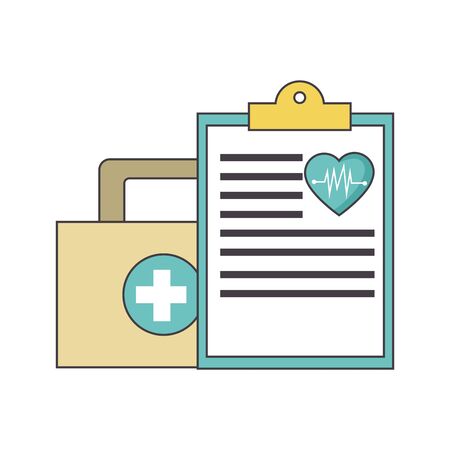Understanding NHS Health Screenings
When it comes to looking after your long-term health and wellbeing, NHS health screenings are a cornerstone of preventative care for adults in Britain. These screenings, offered routinely across the UK, are designed to spot early signs of certain conditions—often before symptoms arise. By identifying potential health concerns early on, such as heart disease, diabetes, or certain types of cancer, you have a better chance of managing or even preventing serious illness down the line. The NHS provides a wide range of these checks at no cost to eligible adults, making them an essential part of our national approach to staying healthy. Taking advantage of these services is not only about safeguarding your own wellbeing but also about supporting the wider community by reducing pressure on healthcare resources. In this guide, we’ll walk you through everything you need to know about NHS health screenings—why they matter, what’s available, and how you can make them a natural part of your routine for a healthier, more balanced life.
Key Screenings Offered by the NHS
When it comes to looking after your long-term health, NHS health screenings play a vital role. These routine checks are designed to spot early signs of certain conditions, often before symptoms appear, and they’re available to most adults in Britain at no cost. Understanding which screenings are offered, who qualifies, and what each one is for can help you take proactive steps towards maintaining your wellbeing.
Main NHS Health Screenings
The NHS offers a range of screening programmes tailored to different age groups and risk factors. Here’s an overview of the main screenings:
| Screening | Who is Eligible? | What It Detects |
|---|---|---|
| NHS Health Check | Adults aged 40-74 (every 5 years) | Risk of heart disease, stroke, type 2 diabetes, kidney disease |
| Cervical Screening (Smear Test) | Women & people with a cervix aged 25-64 | Cervical cancer and cell changes caused by HPV |
| Breast Screening (Mammogram) | Women aged 50-71 (every 3 years) | Early signs of breast cancer |
| Bowel Cancer Screening | Adults aged 60-74 (home test kit every 2 years; some areas start from age 56) | Bowel cancer (blood in poo) |
| Abdominal Aortic Aneurysm (AAA) Screening | Men aged 65+ | Swelling in the aorta (main blood vessel in the abdomen) |
| Diabetic Eye Screening | People with diabetes aged 12+ | Damage to the back of the eyes (diabetic retinopathy) |
A Closer Look at Eligibility and Purpose
The eligibility criteria for each screening are based on evidence about who is most at risk. For example, cervical screening is offered to those with a cervix because cervical cancer is almost always caused by high-risk HPV infection. Similarly, bowel cancer screening starts from age 60 because risk increases as we get older.
Your Next Steps
If you’re eligible for any of these screenings, the NHS will usually contact you automatically—often by letter—inviting you to book an appointment or complete a home test. If you think you might have missed out or need further information about your eligibility, it’s always worth having a word with your GP practice. Regular participation in these screening programmes is one of the simplest ways to stay ahead when it comes to your health.

3. The Screening Process: What to Expect
Attending an NHS health screening can feel daunting if you’re not sure what to expect. Here’s a clear overview of the process, designed to help adults across Britain feel prepared and informed every step of the way.
Invitation Letters: Your First Step
The journey begins when you receive an official invitation letter through the post. These letters are sent out automatically based on your age, gender, or specific risk factors, depending on the type of screening programme. Read your letter carefully—it will outline which test you’ve been invited for, where it will take place (often at your local GP surgery or clinic), and how to book your appointment if necessary.
Preparing for Your Appointment
Preparation is usually straightforward but can vary depending on the test. For example, you might be advised to avoid eating before certain blood tests, or to wear loose clothing for easier access during physical checks. If you’re unsure about any instructions, contact your GP practice for clarification—there’s no such thing as a silly question when it comes to your health.
What Happens During the Screening
On the day, bring your invitation letter and NHS number if possible. Most screenings are quick and minimally invasive; a nurse or healthcare assistant will guide you through each step. You might have measurements taken, answer questions about your lifestyle and medical history, or provide a sample. The staff are there to make you comfortable and answer any concerns, so don’t hesitate to speak up.
After Your Screening: Receiving Results
Results timeframes vary—some results are provided immediately, while others may take a few weeks and arrive by post or via a phone call. Your results will include clear information about what they mean and whether any follow-up is needed. Should anything require further investigation, the NHS will guide you through next steps with additional appointments or referrals as needed.
Top Tips for a Smooth Experience
- Double-check your appointment date and time
- Note down any questions or symptoms beforehand
- Arrive a few minutes early to allow yourself time to relax
- If you’re anxious, consider bringing a friend or family member for support
Remember, NHS health screenings are designed with your wellbeing in mind—they’re routine checks that help keep Britain healthier, one appointment at a time.
4. Common Questions and Misconceptions
Addressing Popular Myths about NHS Health Screenings
Many adults across Britain have questions or uncertainties regarding NHS health screenings. Its natural to want clarity about the process, benefits, and potential drawbacks. Lets clear up some of the most frequently encountered myths and concerns.
Myth vs. Reality Table
| Myth | Reality |
|---|---|
| Screenings are only for older people | Some NHS screenings start as early as your 20s or 30s, depending on risk factors and specific programmes. |
| If I feel healthy, I don’t need a screening | Many conditions screened for are ‘silent’ in early stages; screenings can catch problems before symptoms arise. |
| Screenings are painful or risky | Most NHS screenings are quick, minimally invasive, and carry very little risk. |
| They will always find something wrong | Screenings are there to give you peace of mind; most people receive normal results. |
Frequently Asked Questions (FAQs)
Are NHS screenings free?
Yes, all eligible NHS health screenings are provided free of charge to UK residents. You’ll receive invitations by post or through your GP surgery when it’s time for your check-up.
Will my information stay confidential?
Absolutely. All personal health data collected during screenings is handled with strict confidentiality, in line with NHS guidelines and UK law.
If I miss my invitation, can I still get screened?
If you think you’ve missed an invitation or become eligible after moving house, contact your local GP surgery—they can advise you on how to book your screening appointment.
What if I’m anxious about the results?
This is a common concern. Remember: early detection gives you more options for care and support. If youre feeling worried, talk to your GP or a nurse—they’re there to listen and help put your mind at ease.
Cultural Considerations in Britain
NHS health screenings are designed with inclusivity in mind. Language support, accessible venues, and flexible appointment times aim to make screenings convenient for everyone across England, Scotland, Wales, and Northern Ireland. If you need additional assistance—be it cultural sensitivity or physical access—let your healthcare provider know so they can accommodate your needs.
5. Making the Most of Your Results
Understanding your NHS health screening results can feel overwhelming, but it’s an essential step towards taking charge of your wellbeing. Here’s how to make sense of what you receive and what to do next.
Interpreting Your Screening Outcomes
Your results will usually be sent by post or discussed during a follow-up appointment. They’ll indicate whether everything appears normal or if further tests are recommended. Don’t panic if you’re asked for more checks—screenings are designed to catch potential issues early, often before symptoms arise.
What Do My Results Mean?
- Normal result: No signs of the condition were found. Continue with regular screenings as advised by your GP.
- Borderline or unclear result: Sometimes, the results aren’t definitive. You might be invited for another test to clarify things.
- Abnormal result: This means changes or markers were detected. It doesn’t always mean you have a serious problem, but further investigation is important.
Your Next Steps
- If your results are normal, maintain healthy habits and keep up with routine NHS screenings at the recommended intervals.
- If you need further tests, don’t delay booking these appointments. Early action is key in British healthcare and can make all the difference.
- If you’re referred to a specialist, your NHS team will support you throughout. Ask questions and take notes—no concern is too small when it comes to your health.
Using Your Results to Support Your Wellbeing
Your screening outcomes are more than just numbers—they’re valuable tools for shaping a healthier lifestyle. If any risk factors have been identified (such as high cholesterol or raised blood pressure), now’s the time to make positive changes. The NHS offers support for everything from quitting smoking to managing weight and stress.
Remember, looking after your health isn’t just about responding to problems; it’s about prevention and balance. Use your results as motivation to stay active, eat well, and check in on your mental wellbeing. And if you ever feel unsure about what your results mean, don’t hesitate to reach out to your GP or local practice nurse—they’re there to help every step of the way.
6. Accessibility and Support Within the NHS
The NHS is committed to ensuring that health screenings are accessible to everyone, regardless of background, language, or location. Recognising the diversity of Britain’s communities, a range of outreach programmes and support services have been put in place to bridge any gaps and make it easier for all adults to participate in vital health checks.
Outreach Initiatives
Outreach teams work closely with local communities, especially in areas where access to healthcare may be limited or where there is lower uptake of screenings. Mobile screening units often visit rural villages and urban neighbourhoods alike, bringing essential services closer to home. Community events, pop-up clinics, and partnerships with local organisations further help spread awareness and provide opportunities for screenings in familiar settings.
Support for Diverse Communities
Understanding cultural differences is key to effective healthcare delivery. The NHS partners with community leaders and charities to address specific needs, whether related to faith, gender, or cultural practices. Tailored information sessions are available to ensure everyone feels comfortable attending screenings and understands their importance.
Language Assistance
For those whose first language isn’t English, the NHS offers interpretation services at many screening appointments. Written materials are also available in multiple languages. If you need an interpreter or translated documents, it’s best to request these when booking your appointment—your GP practice or local NHS service can arrange this for you.
Improving Physical Accessibility
Screening centres are designed with accessibility in mind, featuring ramps, lifts, and accessible toilets as standard. Home visits may be arranged for individuals who have mobility challenges or long-term conditions preventing them from attending in person.
Your Right to Accessible Care
No one should face barriers when it comes to looking after their health. If you’re unsure about what support is available or how to access it, don’t hesitate to contact your GP practice or the NHS helpline for advice. Together, we can ensure everyone in Britain has equal opportunity to benefit from preventive health screenings.


